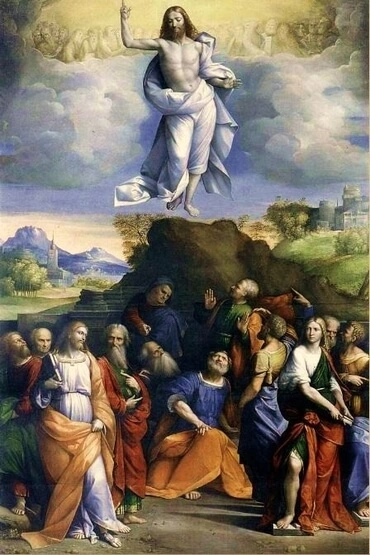Explicación de Juan 1:14
By Brian David (machine translated into Español)

Este es un momento clave en esta historia. El comienzo de Juan 1 explica que el Señor es el amor perfecto e infinito que se expresó como verdad divina. La dualidad del amor y la expresión formaban un modelo para la humanidad, lo que significaba que la dualidad del Señor lo convertía en el humano divino por excelencia. Esto demostró que la verdad divina era el poder de la creación, y que el Señor compartió esa verdad con la humanidad desde el principio, para que la gente pudiera recibir su amor y devolverlo. Pero la gente seguía alejándose, y el Señor tenía que seguir expresando su amor en formas cada vez más externas para mantener la conexión.
Al mencionar a Juan el Bautista, el capítulo mostraba que los judíos de la época todavía tenían la verdad -la Palabra del Señor- contenida dentro de las toscas imágenes del Antiguo Testamento. Pero estaban tan impregnados de amores malvados y pensamientos falsos que la conexión con la Palabra -con el amor dentro del Antiguo Testamento- estaba a punto de ser cortada para siempre.
Así, el Verbo se hizo carne. El Señor pasó la plena expresión de su amor y su plena humanidad a la carne física como Jesús. De esta manera, Él pudo volver a mostrar la vida dentro de las Escrituras existentes y pudo hacer que Su propia vida y Sus propias palabras fueran parte de una expresión ampliada de la verdad para una nueva era de la humanidad. La gente ya no podía ver y sentir el amor del Señor a través del Antiguo Testamento, pero podía verlo y sentirlo en el rostro, las manos y las palabras de Jesús.
La "gloria" expresa aquí el brillo cegador de esa verdad. El "Padre" representa el propio amor del Señor, y ser "engendrado" significa que el amor se expresó en forma de verdad. Estar lleno de "verdad" tiene un significado bastante obvio, pero "gracia" significa un afecto, un amor por lo que es verdadero.
El Señor tenía que venir. Tuvo que dejar que su humanidad fluyera hacia la carne, hacia la más externa de las formas, porque esa era la única manera en que íbamos a verlo y abrazarlo.
(References: Exposición Breve de la Doctrina de la Nueva Iglesia 117; Apocalipsis Explicado 1069 [3]; The Word 20; La Verdadera Religión Cristiana 3, 85)
Arcana Coelestia #2021
2021. 'For an eternal covenant' means conjunction with these people. This is clear from the meaning of 'a covenant' as conjunction, dealt with already in 665, 666, 1023, 1038; and that this conjunction is with those called 'the seed' is clear from the fact of its coming immediately after a reference to that 'seed', and of its being a second mention in this verse of a covenant. Thus the first mention of 'a covenant' has reference to the union of Jehovah with the Human Essence, and the second to the conjunction with those who are 'the seed'. To allow a clearer idea of the union of the Lord's Divine Essence with the Human Essence and of the conjunction of the Lord with the human race by means of the faith that inheres in charity, let the term union here and from now on be used to describe the first of these, and conjunction the second. Indeed the bond between the Lord's Divine Essence and Human Essence really was a union, but that between the Lord and the human race by means of the faith that inheres in charity is conjunction. From this it is clear that because Jehovah or the Lord is Life, His Human Essence became Life as well, as shown above. It was a union of life with life. Man however is not life but a recipient of life, as also shown already. When life flows into a recipient of life conjunction takes place, for life accommodates itself to the recipient as active does to passive or as that which in itself is living does to that which in itself is dead but made living from that which in itself is living. In the case of the principal and the instrumental, as they are called, they do indeed seem to have been joined together to exist as one. Nevertheless they are not one, for each exists by itself. Man does not live of himself, but the Lord in His mercy links him to Himself and in so doing causes him to live for ever. And because the Lord and man are distinct and separate from each other the term conjunction is used.






